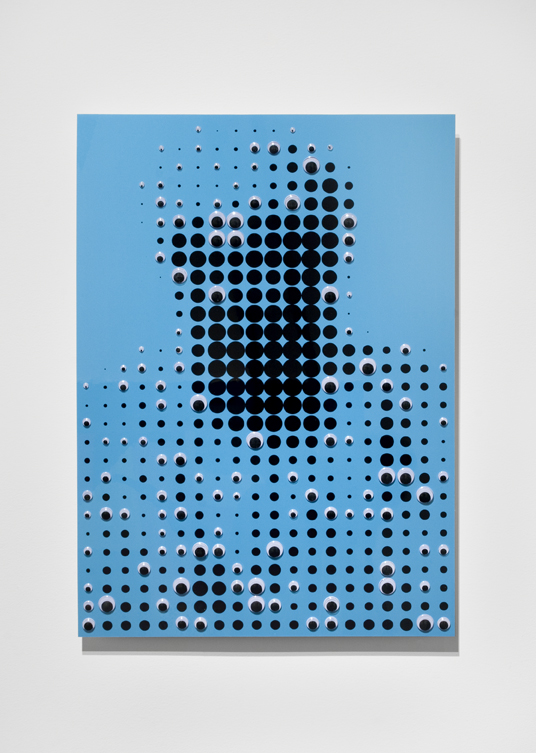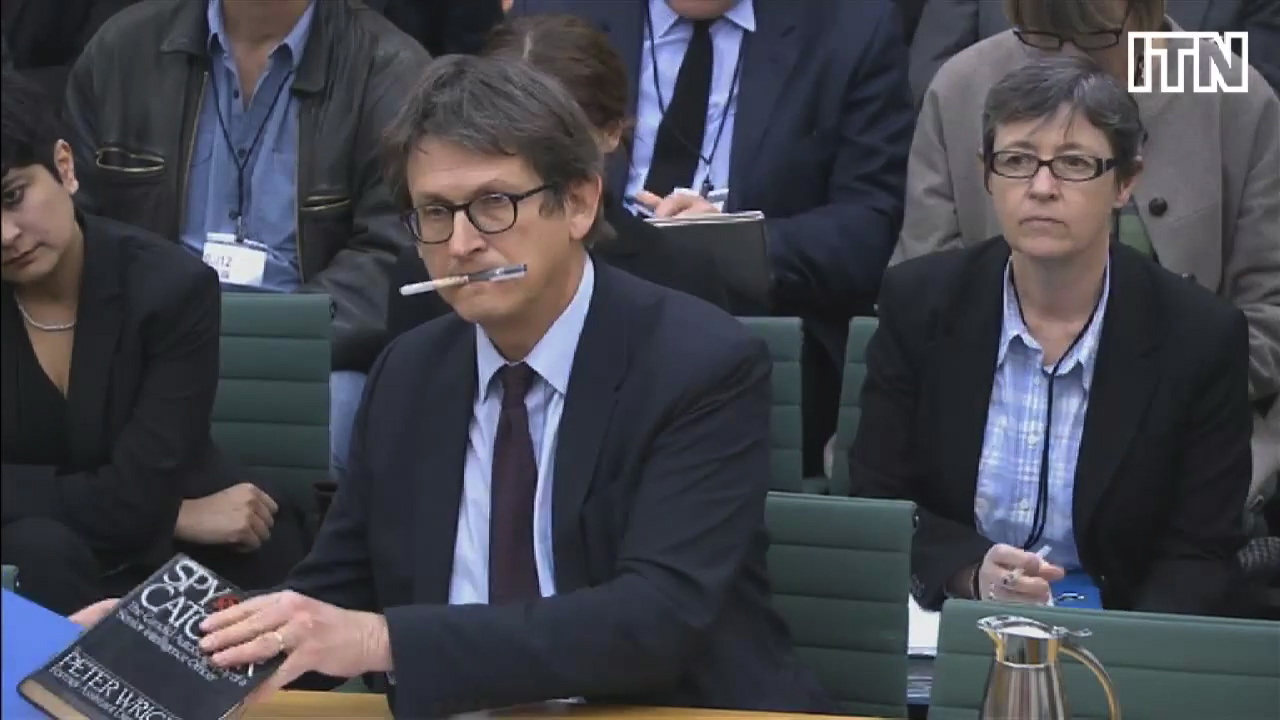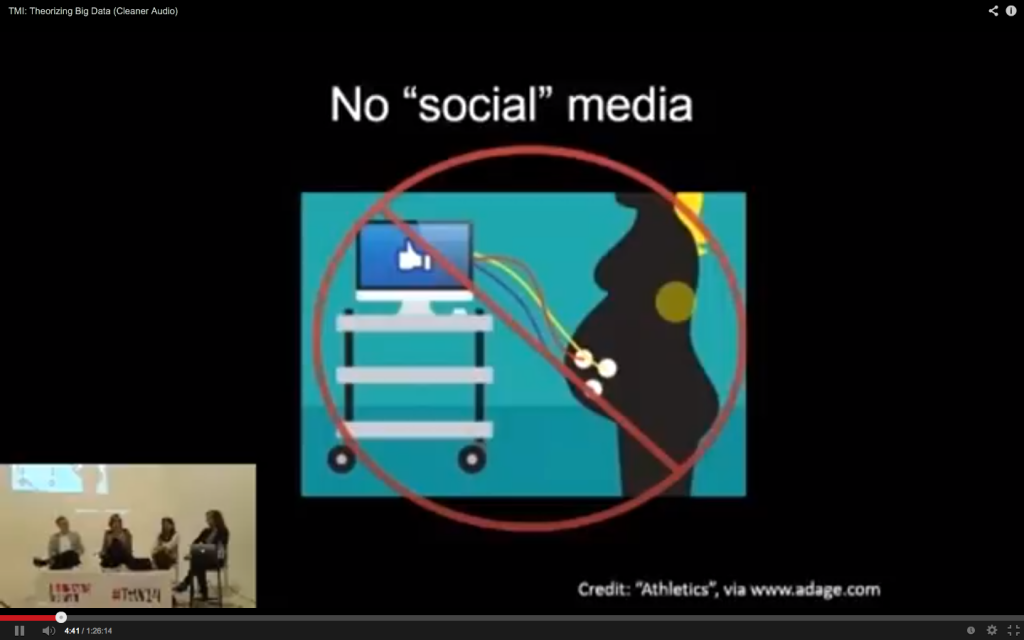
welcome to the Winter Term 2014/15


He puts it very well.
In my mind I’m seeing unblinking eyes: HAL 9000 surveying Dave the astronaut; I’m seeing Doug Coupland surveying the 21st-century world; I’m seeing video surveillance everywhere. I’m seeing ourselves watching ourselves and it’s deeply frightening, as a new form of infrastructure that relentlessly monitors and peels back our privacy, our mysteriousness, our individuality, in every way. Do we all need to feel like we’re living in a movie, thousands of unseen cameras invisibly choreographing scenes with our words, our actions, our movements? And are we almost to the point, thanks to the internet, of providing ourselves with our own laugh track? The googly eyes on Coupland’s Osamas lead me to think that one day we will.
The 9-11 pieces by Douglas Coupland he talks about are pretty good. Wow, those toy eyes.

Happy to advise if you think this could be something for you…
We shop online. We work online. We play online. We live online. As our lives increasingly depend on digital services, the need to protect our information from being maliciously disrupted or misused is really important.
This free online course will help you to understand online security and start to protect your digital life, whether at home or work. You will learn how to recognise the threats that could harm you online and the steps you can take to reduce the chances that they will happen to you.
https://www.futurelearn.com/courses/introduction-to-cyber-security
James Bridle is reclaiming the air, once the realm of utopia and progress, now reserved for surveillance and control:

The editor of the Guardian, Alan Rusbridger, in a mandatory appearance before a parliamentary committee on 3 Dec. 2013, where he was going to be grilled for his role in the publishing of the Snowden leaks. He walks in, knowing that he faces severe criticism and possibly even a jail sentence. He finds his seat in front of the committee, takes a pen out of his pocket, puts it in his mouth and sits down (at 4’15). And doesn’t take it out for the whole of the chairman’s welcome (until 4’51).
My guess: he’s doing it in order not to get intimidated and pushed into a defensive position. To keep sane. He’s making fun of them and mirrors back at them the perceived ridiculousness of the situation. It’s also completely unpredictable behaviour. As I’ve mentioned before, I think this is something that we’re going to see a lot more of.
The full video:
Update: Here’s an article from the beginning of the still ongoing economic crisis, about how to deal with fear and angst, that was behind some of the thinking here.
Someone tried.
Janet Vertesi, assistant professor of sociology at Princeton University, had an idea: would it be possible to hide her pregnancy from big data? Thinking about technology—the way we use it and the way it uses us—is her professional life’s work. Pregnant women, she knew, are a marketing gold mine; a pregnant woman’s marketing data is worth 15 times as much as the average person’s. Could Vertesi, a self-declared “conscientious objector” of Google ever since 2012, when they announced to users that they’d be able to read every email and chat, navigate all the human and consumer interactions having a baby would require and keep big data from ever finding out?
Meet The Woman Who Did Everything In Her Power To Hide Her Pregnancy From Big Data
Big surprise: it’s extremely hard. Furthermore, that sort of behaviour gets you flagged as someone behaving really, really suspiciously. Less like someone privacy-counscious, more like a terrorist. (more)

Mittwoch, 30. April 2014
ab 18.00 Uhr bis ca. 21.00 Uhr Workshops und freies Rumhängen
Cryptopartys sind eine globale DIY-Initiative zur Emanzipation aus der technologischen Unmündigkeit.
Wir meinen, das Thema der digitalen Rundum-Überwachung sollte gerade auch an der Kunsthochschule für Medien kritisch beleuchtet werden. Deshalb freuen wir uns besonders, bereits die zweite Cryptoparty zu veranstalten.
Wieder geht es um die Rückeroberung der Datenhoheit. In entspannter Atmosphäre wird konkretes Wissen rund um Verschlüsselungstechniken und die digitale Selbstverteidigung vermittelt. Bitte Laptop, Notebook oder Vergleichbares mitbringen, um gleich vor Ort loslegen zu können.
Eine Initiative des Surveillant Architectures Seminars mit Jürgen Fricke.
GLASMOOG, Kunsthochschule für Medien Köln
p.s.
wer sich vorbereiten will oder morgen keine Zeit hat:
(auf deutsch): https://digitalcourage.de/support/digitale-selbstverteidigung
(English): Eff’s Surveillance Self-Defense site: https://ssd.eff.org/
Ich bringe diese hier mit
Just to remind you, next Wednesday we’re going to do the Liberation Movements seminar as usual from 10. If you’d like to present something to the group, please bring it. (I think everyone should at least present once).
Then in the evening we’re going to have our second Cryptoparty. Just turn up, bring someone in need of privacy, and a computer.
To prepare for Wednesday, please check out these two fantastic podcasts about Conspiracy Theories.
1.
You Are Not So Smart podcast 016: Conspiracy Theories
http://boingboing.net/2014/01/16/you-are-not-so-smart-podcast-0-5.html
Their guest “Steven Novella is a leader in the skeptic community, … and an academic clinical neurologist at Yale University School of Medicine.” So you kind of know where this is coming from. I find it hugely refreshing. They’re talking about artists without knowing (or explicitly mentioning) it from 45’40:
“Q: Are there certain traits that you’ve seen that make a particular individual more susceptible to believe in conspiracy theories?
A: Well it certainly seems that way. (…) It is certainly recognized that some people have more of a tendency to be paranoid. What we call paranoid ideation. It’s been studied.
In fact, people who tend to believe in conspiracies are also more likely to see patterns in random visual images as well. … They might have this enhanced pattern recognition. Or they may just have a decreased reality testing filter. Meaning that they’re much more likely to think that patters that they think they see are real.
… We all have that tendency to some degree. These just may be people who are farther along that spectrum. They’re a little more paranoid, have more intense pattern-recognition, and they’re less skeptical of their own perceived patterns. “
2.
(in German, from influential bloggers and activists Fefe and Frank Rieger)
Alternativlos, Folge 23, über Verschwörungstheorien, insbesondere um solche, die sich später als wahr herausstellen.
http://alternativlos.org/23/
About the major consensus narrative. What do conspiracy theories have to do with blinkers? Intersting stuff for artists, too. The more you look out for something, the more you find of it, and after a while you start to get blind towards conflicting ideas or alternatives. They say this is valid for narratives as well as imagery. Does it also apply to artistic obsessions? How do you get rid of any of this?
I’m going to put this up on our blog at http://sag.khm.de – leave comments if you dare! (use Tor if necessary)
The effects of surveillance to personal liberty nicely explained: In English und auch auf deutsch.
During the war, Freud lectured on “The Censorship of Dreams” in early December 1915. Around that time, he inserted a new body of text into The Interpretation of Dreams, mapping wartime dream censorship directly onto wartime postal censorship:
Frau Dr. H. von Hug-Hellmuth (1915) has recorded a dream which is perhaps better fitted than any to justify my choice of nomenclature [for censorship]. In this example the dream-distortion adopted the same methods as the postal censorship for expunging passages which were objectionable to it. The postal censorship makes such passages unreadable by blacking them out; the dream censorship replaced them by an incomprehensible mumble.”
A fragment here: A 50-year-old “cultivated and highly esteemed lady” had (in her dream) gone to Garrison Hospital No. 1 saying that she wanted to volunteer for “service” meaning (as was evident to everyone in earshot): “love service” (Liebesdienste). To the sentry she announced, “I and many other women and girls in Vienna are ready to [mumble, mumble].” Yet everyone in the dream understood her. One of the officers: “Suppose, madam, it actually came to…(mumble).” Or later, the dreamer: “It must never happen that an elderly woman…(mumble)…a mere boy. That would be terrible.” As she walked up the staircase she heard an officer comment: “That’s a tremendous decision to make – no matter whether a woman’s young or old! Splendid of her!”